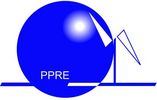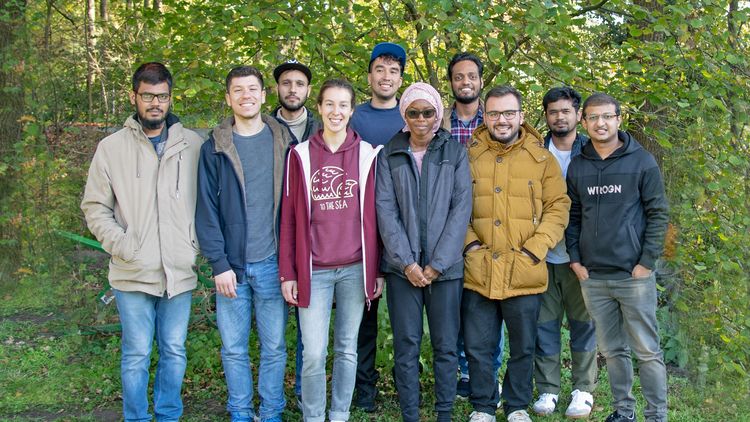Experiences gained during Online-Teaching due to Covid-19 crisis
At National Technical University of Athens (NTUA), Athens, Greece
by EMRE-Students Ranadeep, Jigar, John, Pratik
”We think there are some advantages and disadvantages
Advantages:
- The time invested in going to university is 0. This time could be used in other activities.
- The lectures are recorded so we can see the videos as much as possible until the concepts are understood.
- You can save money because there is no need to buy coffee or other snacks at the university.
Disadvantages:
- As the lectures are online, the risk of being distracted with social networks (Facebook, Twitter) is higher
- There is no real bond between students and the lecturer.
- The communication is broken (more than 60% of communication is body language so a lot of the communication is lost)
- There is no real social contact between the students
- There is no real feeling of studying.
- As someone is distracted in the lectures, you invest more time watching the videos in order to understand the concepts.
- As there are no services from the uni as the cafeteria, you "waste" time cooking and if you want to cook something elaborated, the invested time is higher.
- As in Athens the breakfast, lunch, and dinner are for free for students, I spent more money on food.
- Being the whole day at home can be counterproductive, monotonous, and boring.
- There is less motivation for studying
- Learning software online is really difficult and we don't recommend it at all. We had to learn some simulation software here though lecturers tried their best, it was still difficult to adapt it.
Conclusion:
We are not against online lectures, maybe for some topics, it could be even better than face to face lectures, but in my opinion, I prefer the traditional way of lectures. Nothing is better than classroom studies.”
At University of Lisbon, Instituto Superior Técnico, Portugal
by Robin Pais, Portugal (EMRE-student)
“I had started my Erasmus semester mid of February 2020. Two weeks later the first email was sent, mentioning that the university was setting up a contingency plan. In an email on the 9th of March, all classroom activites were suspended by the 11th of March. Within a week, remote teaching was implemented via Zoom. Since that day, remote teaching persists. I was very surprised how quick Zoom was set up as a solution. Basically only a few classes could not be held and were therefore rescheduled to a later date. Very soon, I was also back to Germany, living at my parent's place again.
Within short time I became very used to Zoom, even though the transmissions are sometimes interrupted or noisy. It happened a few times that either the teaching staff had bad connection, the connection got lost or irritating sounds from any of the participants could be heard. I have to admit, that remote teaching makes the lessons less interactive and interesting. I caught myself several times, distracting myself with other activities on the computer or in my room.
In terms of the course structure, most of the evaluation means were kept. There were and still are some assignments to submit. Unfortunately, we were not able to work in the laboratory, but still did a report on it after getting a set of data. There was only that laboratory scheduled within the whole semester to apply the gained knowledge from the lectures. So it would have been great to participate in it. In the meanwhile, several exams took place via a remote teaching website from the University. On that website several question can be asked. Most of them have been multiple choice, but written answers can be asked too. Having multiple choice answer for calculations can be good or bad. If you find the correct answer, you are good. But if you did something wrong, you will not get any points for the calculation steps nor will you be able to proceed with following questions, as the answer before needs to be correct to get the following right answer. In addition, the exam time is set up before, meaning when problems occur, the answering time cannot be extended. So in those terms, I am rather disappointed by the method.
In summary the Instituto Superior Técnico reacted very quick offering remote teaching within one week. At the beginning everyone had to get used to it, but by the end everyone seems to be fine. Nevertheless, I really missed out classroom teaching and especially to get to know my colleagues and the local campus/student life.“
At Universidad de Zaragoza, Spain
by Fatimata Diallo, Senegal (EMRE-Student)
“To me, the online lectures help winning in time (no need to lose 1 or 2h to go to the university)
However, we have much more assignments to do and it feels overwhelming sometimes.
Also, when the teacher is online, it is not easy to take notes quickly thus we have to look again to the recorded lectures which is nice but takes time.”
At Hanze University of Applied Sciences, Groningen, The Netherlands
by Bernardo Figueiredo, Brasil (EMRE-Student)
“We use a platform called Blackboard and the teaching is done also through it. Blackboard has a section to store files and also a meeting interface. Most of the classes we are having are live and we have some papers and power point presentations to study.
The Hanze university has also an online library, so we can borrow books through an Adobe program, that keeps track of the days we have left for the loan.
The interactions between the lecturers and students is by email and during classes. Usually we start classes from 10:30 to 14:30, but we don't have classes every day.
We had an exam, in which the teacher kept watching us through the webcam, but personally I think it is not very effective. Most the exams we should have are being changed to assignments.”


